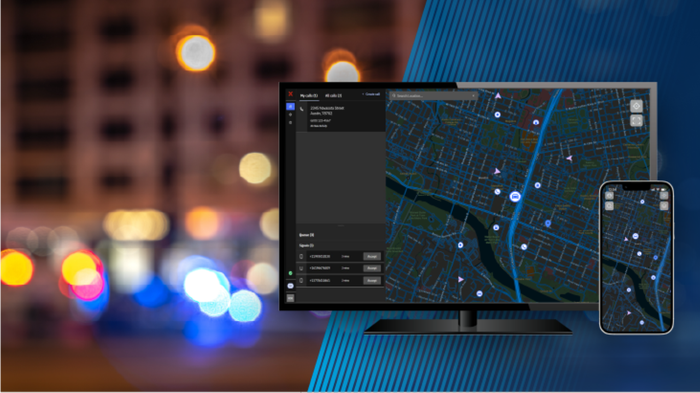Hytera asks appeals court to halt injunction blocking sales of two-way-radio productsHytera asks appeals court to halt injunction blocking sales of two-way-radio products
.jpg?width=1280&auto=webp&quality=95&format=jpg&disable=upscale)
Hytera Communications has asked a U.S. appeals court to halt a federal district court’s injunction that has prevented the land-mobile-radio (LMR) manufacturer from selling two-way-radio products worldwide for more than a week—sanctions that Hytera attorneys described as “crushing” in a legal brief.
Meanwhile, U.S. District Court Judge Martha Pacold on Monday again extended the injunction that includes sanctions blocking Hytera Communications sales of two-way-radio products worldwide. During a status hearing conducted Monday, Pacold reiterated her belief that the sanctions create an incentive for Hytera Communications to make efforts to gain clarity that a case Hytera withdrew earlier this month has been dismissed by a China court without language that could undermine the jurisdiction of the U.S. district court.
In the case before the China court in Shenzhen, Hytera Communications initially sought to have the three-judge panel determine that the company’s H-Series DMR products do not use the Motorola Solutions trade secrets and copyrighted software, so they do not require Hytera Communications to make royalty payments to Motorola Solutions when H-Series products are sold. Hytera Communications withdrew the litigation in the Shenzhen court to comply with Pacold’s order, but the China court has not issued a formal written ruling in the matter.
A U.S. attorney representing Hytera Communications expressed frustration with the ongoing U.S. district-court sanctions blocking the company’s sales of two-way-radio products worldwide, stating that the China-based LMR manufacturer has complied with all district-court orders since Pacold issued her March 25 injunction that included the sales ban and a $1 million-per-day fine. With this in mind, the Hytera attorney stated that the sanctions should be lifted or stayed, because the outcome appears to depend on action by the Shenzhen court, not Hytera Communications.
Judge Pacold disagreed with this assessment, noting that whether the sanctions are lifted “is about Hytera’s actions”—notably, demonstrating whether Hytera Communications has taken all measures get clarity whether the Shenzhen court dismissed a case withdrawn by Hytera Communications.
Hytera Communications has noted in legal filings that the Shenzhen court made an oral ruling accepting Hytera’s withdrawal from the case and documented it with a transcript of the proceeding—not attended by a representative for Motorola Solutions—that was signed by the three judges. A clerk or assistant judge for the Shenzhen court has written an instant message indicating that this action made the oral ruling legally effective.
However, the Shenzhen court also indicated that some form of a written order is forthcoming, and Pacold has expressed concern that it may include language that could undermine the jurisdiction of the U.S. district court or conflict with a ruling of the U.S. court.
At the urging of Pacold, Hytera Communications has asked the Shenzhen court to issue its written ruling or indicate that no written ruling is forthcoming, but the China court has not responded during the past week. Even if the Shenzhen court issues a written ruling, it is required to reflect only the findings expressed during the oral proceeding, so this should not be an issue for the U.S. district court, according to Hytera Communications.
This argument forms the basis of the Hytera Communications argument in its appeal to the 7th Circuit Court of Appeals that asks that the contempt sanctions issued by Pacold be halted.
“Even though Hytera has complied with the [injunction] orders, the district court has kept the crushing sanctions in place based on speculation that the Shenzhen court may issue another order containing substantive reasoning that may harm Motorola in some way and that creates duplicative judgments threatening the district court’s jurisdiction,” the Hytera Communications filing states. “As Hytera demonstrated, this view is contrary to the legal opinions of both Hytera’s and Motorola’s Chinese counsel on Chinese law.
“In any event, Hytera cannot control the Shenzhen court. To the suggestion that Hytera is somehow scheming with the Shenzhen court to obtain a substantive order, this is unsupported by any evidence and is implausible multiple times over: that Hytera would destroy its own business in order to obtain an order that contradicts established Chinese law and that Hytera cannot rely upon anyway due to the sanctions order in this case. Since the district court has refused to comply with this Court’s precedent on lifting sanctions, this Court’s immediate intervention is needed.”
Motorola Solutions offered a much different perspective in its legal brief to the 7th Circuit Court of Appeals.
“Hytera may purge the contempt by demonstrating it exhausted all efforts to effectuate a complete, true withdrawal of the Shenzhen case that does not prejudice the ongoing district court proceedings and by producing ex parte communications [with the Shenzhen court] as a ‘verification of compliance,’ the Motorola Solutions filing states.
“Sanctions are the only reason Hytera has continued pursuing a complete dismissal and are the only reason that Hytera will continue to take action: ‘as soon as we lift [sanctions] … any incentive to cooperate just evaporates.’”
In an April 6 order, the 7th Circuit Court of Appeals denied Hytera Communications’ emergency motion to prevent the injunction sanctions blocking Hytera two-way-radio sales from being implemented while the matter is appealed. In doing so, the appeals court said the injunction sanctions are the result of “self-inflicted wounds” created by Hytera Communications.
“Hytera has told the district court and this court that it has done all it can to comply with the injunctions and thus should be entitled to removal of the serious contempt sanctions,” according to the appeals-court order. “The district court has made clear, however, that at this stage of the litigation, it simply cannot take Hytera at its word. The district court has therefore required Hytera to prove its compliance with the injunctions.
“Given Hytera’s record of behavior, from the underlying theft of trade secrets and copyright infringement to sanctionable conduct before trial, the post-verdict litigation in this case, the failure to pay royalties as ordered (leading to an earlier contempt finding), filing the long-secret Shenzhen case, and its responses to the injunctions at issue here, Hytera has shown that its unverified representations to the tribunal cannot be trusted.
“To the extent that Hytera is now facing painfully coercive sanctions, it is lying in a bed it has crafted for itself over the past seven years, and in particular, over the last two weeks. Self-inflicted wounds are not irreparable injury and do not require much indulgence from a court of equity.”
At issue is Hytera Communications’ efforts to have a China court in Shenzhen declare that its H-Series DMR products do not infringe upon Motorola Solutions’ trade secrets or copyrighted software, so sales of the new DMR portfolio should not be subject to the royalty payments to Motorola Solutions outlined by the U.S. district court.
Hytera Communications initiated this lawsuit in the Shenzhen court on June 2, 2022, but Motorola Solutions was not served with the matter until November 2023—at least 17 months later. The U.S. district court was not informed of the H-Series litigation during this period.
In legal filings, U.S. attorneys representing Hytera Communications state that they were not notified of the H-Series legal action in the Shenzhen court until January of this year, because the matter in the Shenzhen court is being handled by separate lawyers based in China.
“Both Hytera and its counsel apologize for the failure to promptly bring the China action to the [U.S. district court’s] attention,” according to an April 11 status update provided by Hytera Communications to the U.S. appeals court.
Pacold has called almost-daily status hearings since the injunction became effective. Another status hearing is scheduled for today, April 16.
This civil litigation is a continuation of a legal saga that began in March 2017, when Motorola Solutions filed a lawsuit with the U.S. district court alleging that Hytera Communications used stolen Motorola Solutions trade secrets and copyrighted software to develop its DMR product portfolio. After a four-month trial, a jury unanimously found Hytera Communications guilty in February, and U.S. District Court Judge Charles Norgle issued the judgment the following month. Judge Pacold was assigned the case after Norgle’s retirement in October 2022.
After adjustments, Hytera Communications owes Motorola Solutions $543 million based on the award associated with the case, unless the ruling is overturned or the amount is reduced on appeal.
This civil lawsuit should not be confused with the criminal-conspiracy case against Hytera Communications and seven individuals filed by the U.S. Department of Justice, although it shares many of the relevant facts. The trial in the criminal case is scheduled to begin on Oct. 1.





